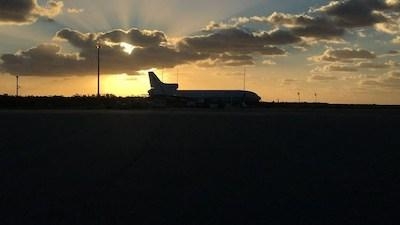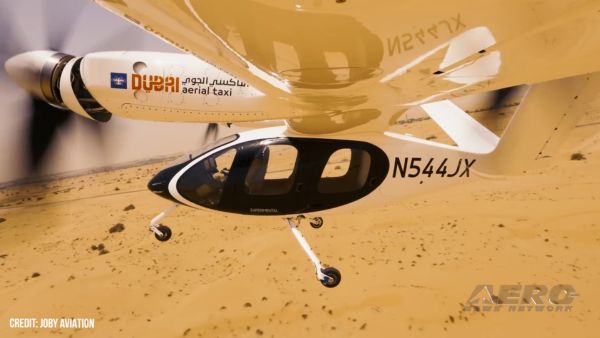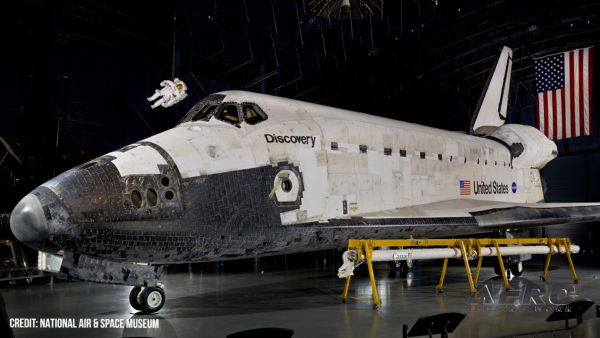Sat, Nov 10, 2018
Mission To Be 44Th Flight Of World's First Privately-Developed Commercial Rocket
Northrop Grumman Corporation is prepared to launch the company’s air-launched Pegasus XL rocket aboard its Stargazer L-1011 airplane from Cape Canaveral Air Force Station on November 7, at approximately 3:05 a.m. EST. This will be the 44th flight for Northrop Grumman’s unique air-launched Pegasus rocket.

Pegasus will be carrying NASA’s Ionospheric Connection Explorer (ICON) satellite, built by Northrop Grumman at its manufacturing facilities in Dulles, Virginia and Gilbert, Arizona. ICON will study the frontier of space – the dynamic zone high in Earth’s atmosphere where terrestrial weather from below meets space weather above. The explorer will help determine the physics of Earth’s space environment and pave the way for mitigating its effects on technology, communications systems and society. ICON is based on Northrop Grumman’s flight-proven LEOStar-2 spacecraft bus and adds to an extensive list of science satellites the company has developed and built for NASA over the last 35 years.
Northrop Grumman has previously provided both the satellite and launch vehicle for numerous NASA scientific missions. The most recent example of this dual capability occurred mid-2012 when the Northrop Grumman-built Nuclear Spectroscopic Telescope Array (NuSTAR) satellite launched on a Pegasus rocket. Other examples include the Interstellar Boundary Explorer (IBEX), the Aeronomy of Ice in the Mesosphere (AIM) satellite, the Solar Radiation and Climate Experiment (SORCE) and the Galaxy Evolution Explorer (GALEX).
Pegasus is the world’s first privately-developed commercial rocket and the leading launch system for deploying small satellites into low earth orbit. The rocket has a perfect launch record for more than 20 years.
A NASA Category 3 vehicle in the small-launch class, Pegasus is certified to launch NASA’s most valuable small satellites. NASA’s Launch Services Program, which matches spacecraft with launch vehicles, facilitated the launch.
The original air-launched space launcher, the Pegasus rocket launches from beneath Northrop Grumman’s Stargazer L-1011 carrier airplane, providing customers with unparalleled flexibility to operate from virtually anywhere on Earth with minimal ground support requirements. Previous Pegasus missions have launched from five separate sites in the U.S., Europe and the Marshall Islands.
(Image provided with Northrop Grumman Corporation news release)
More News
Also: Outlaw Prop 4 Mooney, Ready 4 Duty, Ukrainian F-16 Pilot Lost, Blue Origin Flt On his journey to become the first pilot to land solo on all seven continents, 19-year-old Etha>[...]
Also: DarkAero Update, Electric Aircraft Symposium, Updated Instructor Guide, OSH Homebuilts Celebrate The long-awaited Sonex High Wing prototype has flown... the Sonex gang tells >[...]
Discrete Code As used in the Air Traffic Control Radar Beacon System (ATCRBS), any one of the 4096 selectable Mode 3/A aircraft transponder codes except those ending in zero zero; >[...]
From 2023 (YouTube Edition): Deviation from the Historical Mean Racine, Wisconsin-based DeltaHawk is a privately-held manufacturer of reciprocating engines for aircraft and hybrid >[...]
Aero Linx: Formation and Safety Team (F.A.S.T.), USA The Formation and Safety Team (FAST) is a worldwide, educational organization dedicated to teaching safe formation flying in Wa>[...]
 Airborne 07.02.25: TikToker Arrested, Vietnam A/L Ground Hit, ATC Modernization
Airborne 07.02.25: TikToker Arrested, Vietnam A/L Ground Hit, ATC Modernization Airborne Affordable Flyers 07.03.25: Sonex HW, BlackShape Gabriel, PRA Fly-In 25
Airborne Affordable Flyers 07.03.25: Sonex HW, BlackShape Gabriel, PRA Fly-In 25 ANN's Daily Aero-Term (07.07.25): Discrete Code
ANN's Daily Aero-Term (07.07.25): Discrete Code Classic Aero-TV: DeltaHawk Aero Engine Defies Convention
Classic Aero-TV: DeltaHawk Aero Engine Defies Convention ANN's Daily Aero-Linx (07.07.25)
ANN's Daily Aero-Linx (07.07.25)



